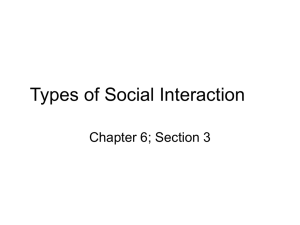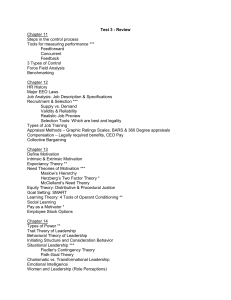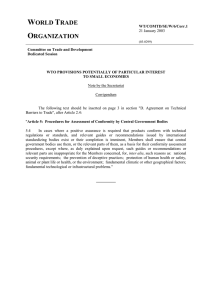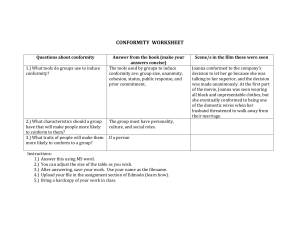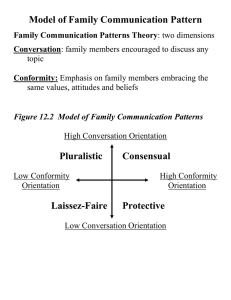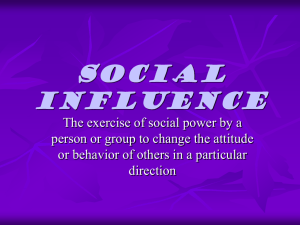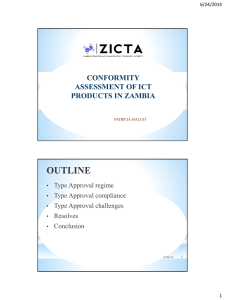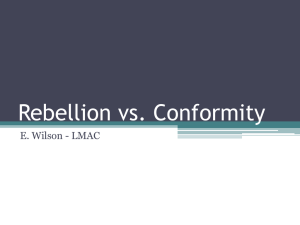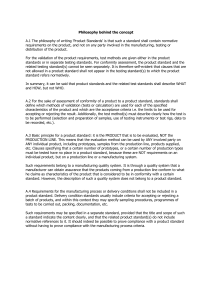POPULAR CULTURES 1978 – Peter Burke, Popular Culture in Early
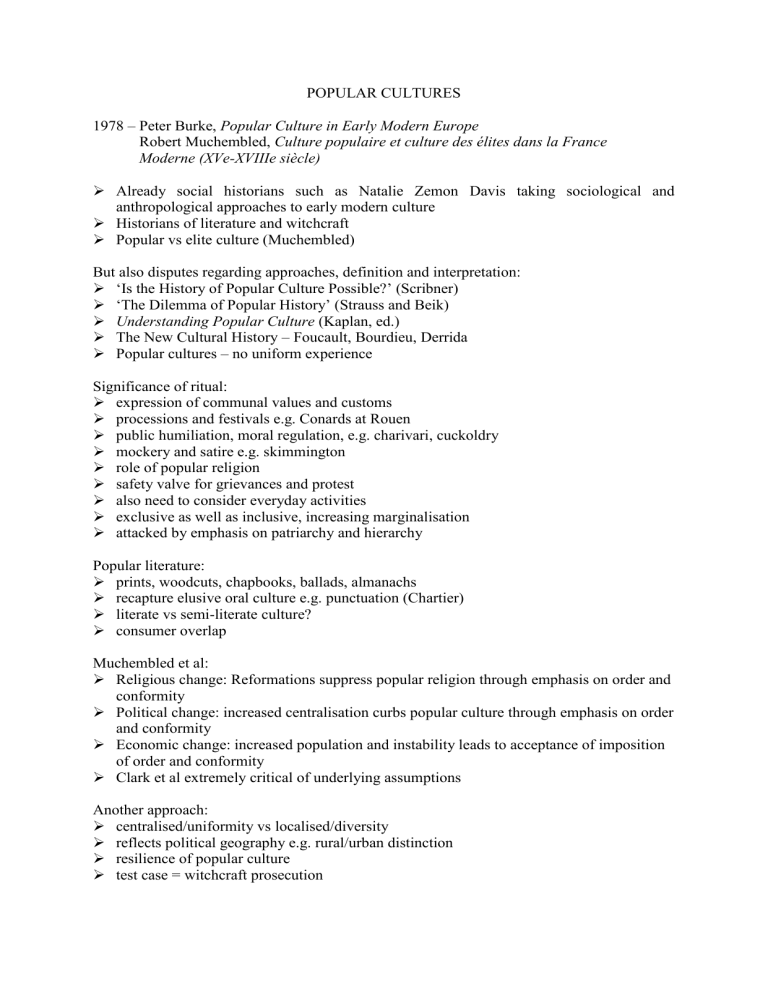
POPULAR CULTURES
1978 – Peter Burke, Popular Culture in Early Modern Europe
Robert Muchembled,
Culture populaire et culture des élites dans la France
Moderne (XVe-XVIIIe siècle)
Already social historians such as Natalie Zemon Davis taking sociological and anthropological approaches to early modern culture
Historians of literature and witchcraft
Popular vs elite culture (Muchembled)
But also disputes regarding approaches, definition and interpretation:
‘Is the History of Popular Culture Possible?’ (Scribner)
‘The Dilemma of Popular History’ (Strauss and Beik)
Understanding Popular Culture (Kaplan, ed.)
The New Cultural History – Foucault, Bourdieu, Derrida
Popular cultures – no uniform experience
Significance of ritual:
expression of communal values and customs
processions and festivals e.g. Conards at Rouen
public humiliation, moral regulation, e.g. charivari, cuckoldry
mockery and satire e.g. skimmington
role of popular religion
safety valve for grievances and protest
also need to consider everyday activities
exclusive as well as inclusive, increasing marginalisation
attacked by emphasis on patriarchy and hierarchy
Popular literature:
prints, woodcuts, chapbooks, ballads, almanachs
recapture elusive oral culture e.g. punctuation (Chartier)
literate vs semi-literate culture?
consumer overlap
Muchembled et al:
Religious change: Reformations suppress popular religion through emphasis on order and conformity
Political change: increased centralisation curbs popular culture through emphasis on order and conformity
Economic change: increased population and instability leads to acceptance of imposition of order and conformity
Clark et al extremely critical of underlying assumptions
Another approach:
centralised/uniformity vs localised/diversity
reflects political geography e.g. rural/urban distinction
resilience of popular culture
test case = witchcraft prosecution
